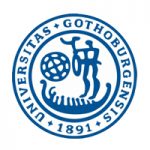项目介绍
The University of Gothenburg tackles society’s challenges with diverse knowledge. 56 000 students and 6 600 employees make the university a large and inspiring place to work and study. Strong research and attractive study programmes attract researchers and students from around the world. With new knowledge and new perspectives, the University contributes to a better future.
Postdoc in Software Engineering
The department of Computer Science and Engineering is strongly international, with approximately 300 employees from over 30 countries. The department is a fully integrated department with the University of Gothenburg and Chalmers University of Technology as principals.
The department of Computer Science and Engineering is now looking for a postdoc. The position is placed in the Division for Interaction Design and Software Engineering at the department, with the University of Gothenburg as the employer, in close cooperation with the division of Networks and Systems at Chalmers.
Located in Gothenburg – Sweden’s second-largest city – the department is surrounded by a vibrant ecosystem of software-intensive companies. The department is connected to science parks in Gothenburg for industrial collaborations in fields including intelligent vehicles and transport systems, mobile internet, energy, nanotechnology, and life sciences.
The successful candidate will conduct research in close collaboration with world-class researchers in the Interaction Design and Software Engineering Division, which has a strong software development and AI Engineering focus, which is a part of the Software Center (www.software-center.se).
Subject area
Software Engineering
Subject area description
This project is to be done in software engineering, focused on natural language analysis of standards, e.g., 3GPP. As modern software development becomes increasingly competitive, generative AI tools become increasingly popular among software engineers. Tools like Github Copilot or ChatGPT are important for software engineers who can increase their productivity by using these tools in their workflows. When creating/specifying standards, generative AI provides leaps in productivity as software engineers can interpret the standards faster. This also means new standards constantly increase, and companies must adopt them faster to remain competitive.
Our project addresses the challenges of creating requirements from these standards, with a particular focus on using RAGs (Reality Augmented Generation) and graph neural networks to interpret the standards and find the best way to adopt them. This is particularly important for software center companies in general and Ericsson in particular.
Duties
The work in the project consists of 80% research and 20% teaching within the area of software engineering and network- and system development.
The research tasks in this project consist of literature reviews and case studies of software products and standards. In the first part of the project, the focus is on the telecommunication standards for 6G network software. The project will start by developing techniques to interpret these standards based on taxonomies of non-functional software properties like latency, bandwidth, and security. In the second part of the project, the focus is on the development of RAGs and support tools for software center companies.
The teaching activities at the department consist of lecturing, supervising exercises, supervising Bachelor’s and Master’s thesis projects for at most 20% of her/his time, and possible co-supervision of PhD students.
Eligibility
The eligibility criteria for employing teaching staff are set out in Chapter 4 of the Higher Education Ordinance and in the Appointment Procedure for Teaching Posts at the University of Gothenburg.
To be eligible for appointment as a postdoc, the applicant is required to have a doctoral degree in relevant subject areas, for example: software engineering, software development, computer science or artificell intelligence, or a foreign degree that is deemed to be equivalent to a doctoral degree. This eligibility requirement must be met before the employment decision is made.
In the first instance, those who have completed their degree no more than three years prior to the end of the application period shall be considered. Those who have completed their degree more than three years prior to the end of the application period may also be considered in the first instance if special grounds exist. Special grounds relate to leave of absence due to illness, parental leave, commissions of trust within union organisations, service within the defence services or other similar circumstances, as well as clinical service or service/assignment relevant to the subject area.
Assessment criteria
Regulations for the evaluation of qualifications for academic positions are given in Chapter 4, Section 3 – 4 of the Higher Education Ordinance.
The candidate needs to have:
- Fundamental knowledge about neural networks and other machine learning methods,
- Fundamental knowledge about embedded software development,
- Fundamental knowledge about software requirements, including scenarios, non-functional requirements, and methods of writing and analyzing requirements,
- Experience with planning, conducting, and analyzing research in applied information technology, computer science, and software engineering by using, for example, Action Research, Design Science,
- Advanced skills in empirical research, e.g., interviews and case studies
Furthermore, the following merits are a bonus:
- Good programming skills (C, C++, Python) and experience with Linux,
- Good knowledge of the telecom and automotive industry and its specific communication protocols and software architectures,
- Published articles in well-renowned conferences and/or journals,
- Experience with self-propelled research within the automotive industry,
- Teaching experience, and
- Being able to read and write in Swedish and English
Employment
Type of employment: Fixed-term employment, 24 months, central agreement
Extent: 100% full time
Location: Department of Computer Science and Engineering, division of Interaction Design and Software Engineering
First day of employment: 2025-05-01 or according to agreement
Contact information
If you have any questions regarding the project, please contact Miroslaw Staron miroslaw.staron@gu.se
If you have any questions about the position, please contact Eric Knauss eric.knauss@gu.se
If you have any questions about the recruitment process, please contact Sanna Staf sanna.staf@cse.gu.se
Unions
Union representatives at the University of Gothenburg can be found here: https://www.gu.se/om-universitetet/jobba-hos-oss/hjalp-for-sokande
Application
Submit your application via the University of Gothenburg’s recruitment portal by clicking the “Apply” button. It is your responsibility to ensure that the application is complete as per the vacancy notice, and that the University receives it by the final application deadline.
The selection of candidates is made on the basis of the qualifications registered in the application. The application is to be written in English.
Applications must be received by: 2025-03-15
Information for International Applicants
Choosing a career in a foreign country is a big step. Thus, to give you a general idea of what we and Gothenburg have to offer in terms of benefits and life in general for you and your family/spouse/partner please visit:
https://www.gu.se/en/about-the-university/welcome-services
https://www.movetogothenburg.com/
联系方式
电话: +46 31-786 00 00相关项目推荐
KD博士实时收录全球顶尖院校的博士项目,总有一个项目等着你!




